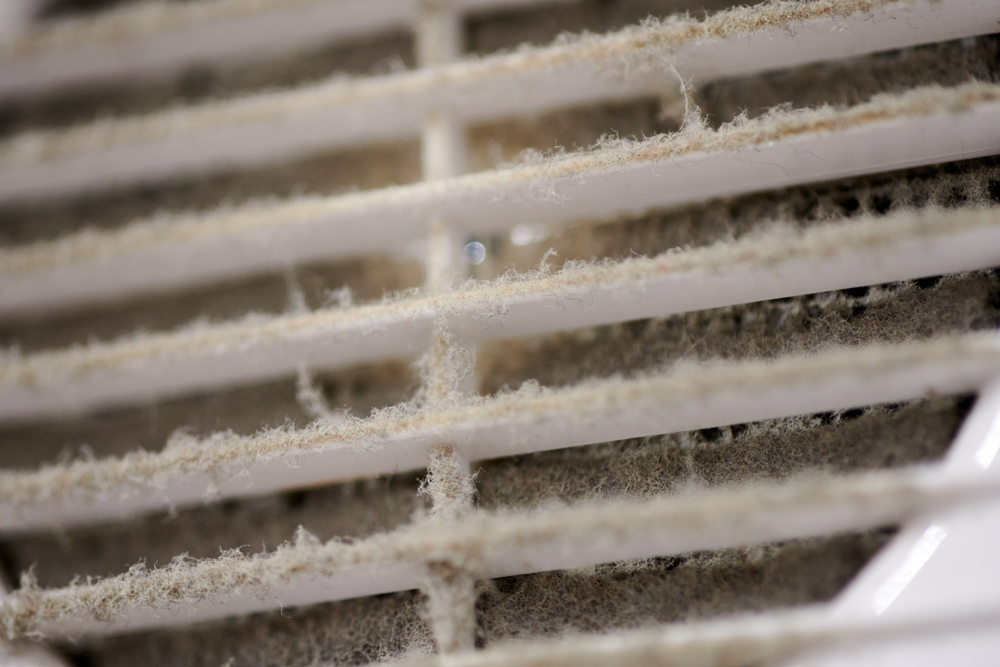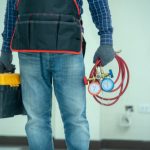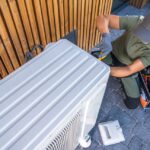
Spring HVAC Maintenance Checklist for Allergy Relief
As spring approaches, so does allergy season. For those living in Tampa, FL, the combination of high pollen counts and fluctuating temperatures can make allergies particularly challenging. One of the most effective ways to combat allergens in your home is through proper HVAC maintenance. This guide will walk you through a comprehensive spring HVAC maintenance checklist designed to provide allergy relief and ensure a comfortable indoor environment.
Why Spring HVAC Maintenance Is Crucial
Spring HVAC maintenance in Tampa, FL, isn’t just about comfort—it’s about health. Your HVAC system plays a critical role in maintaining indoor air quality (IAQ). Neglecting regular upkeep can lead to the buildup of allergens like dust, pollen, and mold, exacerbating allergy symptoms for you and your family.
By following this maintenance checklist, you can reduce allergens in your home and keep your system running efficiently. Let’s dive into the steps you need to take.
Inspect and Replace Air Filters
One of the most straightforward Allergy relief HVAC tips is to regularly check and replace your HVAC air filters. These filters are your first line of defense against airborne allergens.
- When to Replace: Check your air filter every 30 days during allergy season and replace it if it appears dirty.
- Filter Type: Use a high-efficiency particulate air (HEPA) filter or one with a MERV (Minimum Efficiency Reporting Value) rating of 8 or higher.
- Pro Tip: Consider upgrading to filters specifically designed for allergy relief to trap smaller particles like pollen and pet dander.
Clean Air Ducts
Your home’s air ducts can accumulate dust, mold, and other allergens over time. Dirty ducts can circulate these contaminants throughout your home.
- Inspect Ductwork: Look for visible dust, debris, or signs of mold growth in your ducts.
- Professional Cleaning: Schedule a professional air duct cleaning at least once every few years, especially if you’ve noticed increased allergy symptoms or reduced airflow.
- Seal Leaks: Ensure there are no gaps or leaks in the ductwork to prevent the intrusion of unfiltered air.
Check the Outdoor Unit
Your HVAC system’s outdoor unit is exposed to the elements year-round, making it susceptible to dirt, debris, and pollen buildup.
- Clear Debris: Remove leaves, grass clippings, and other debris from around the unit. Maintain at least a two-foot clearance for proper airflow.
- Clean the Coils: Dirty coils reduce efficiency and can trap allergens. Use a soft brush or hose to gently clean them.
- Inspect the Area: Ensure no plants or bushes are too close, as they can restrict airflow and contribute to debris buildup.
Maintain Indoor Humidity Levels
High humidity can create a breeding ground for mold and dust mites, while low humidity can aggravate respiratory issues. Striking the right balance is key to allergy relief.
- Ideal Humidity Range: Maintain indoor humidity levels between 30% and 50%.
- Use a Dehumidifier: If your home is consistently humid, a dehumidifier can help. Many modern HVAC systems come with built-in humidity controls.
- Check for Leaks: Ensure your HVAC system isn’t leaking, as this can contribute to excess moisture.
Schedule a Professional HVAC Inspection
While there are many DIY steps you can take, some tasks are best left to the professionals. A spring tune-up by an HVAC technician in Tampa, FL, can address deeper issues and optimize system performance.
- Thermostat Calibration: Ensure your thermostat is accurately reading and controlling your home’s temperature.
- Refrigerant Levels: Low refrigerant can strain your system and affect air quality.
- Electrical Connections: Technicians will check and tighten any loose connections to prevent hazards.
- Airflow Testing: Proper airflow ensures even cooling and reduces the risk of allergens settling in certain areas.
Upgrade to a Smart Thermostat
A smart thermostat isn’t just a luxury—it can be an essential tool for managing allergies.
- Scheduling: Program your system to run during peak pollen hours to filter outdoor air.
- Alerts: Some smart thermostats can alert you when it’s time to change your filter.
- Energy Efficiency: Efficient operation reduces energy costs and ensures your system is working optimally.
Regularly Clean Vents and Registers
Vents and registers are often overlooked but can accumulate dust and allergens if not cleaned regularly.
- Vacuum Dust: Use a vacuum cleaner with a brush attachment to remove dust from vents and registers.
- Wipe Down: Clean them with a damp cloth to eliminate any lingering particles.
- Inspect for Blockages: Ensure no furniture or curtains are blocking airflow.
Use an Air Purifier
Pairing your HVAC system with a quality air purifier can significantly reduce airborne allergens.
- HEPA Purifiers: Choose a purifier that uses HEPA filters for maximum efficiency.
- Whole-House Systems: Consider installing a whole-house air purifier directly into your HVAC system for consistent IAQ improvements.
- Portable Units: Use portable air purifiers in high-traffic areas or bedrooms for targeted relief.
Test for Mold
Mold is a common allergen in humid climates like Tampa, FL. Regular HVAC maintenance can help prevent and detect mold growth.
- Inspect Components: Check areas like the evaporator coils, drip pans, and ducts for signs of mold.
- Clean Promptly: If you notice mold, clean it immediately using a bleach solution or an EPA-approved cleaner.
- Professional Testing: If mold issues persist, consult a professional for testing and remediation.
Optimize Ventilation
Proper ventilation ensures a steady flow of fresh air, which helps dilute allergens indoors.
- Use Ventilation Fans: Turn on kitchen and bathroom fans to reduce humidity and odors.
- Open Windows Strategically: During low-pollen times, open windows for natural ventilation.
- Energy Recovery Ventilators (ERVs): Consider installing an ERV to improve ventilation without losing energy efficiency.
Regularly Inspect Insulation
Good insulation prevents unfiltered outdoor air from entering your home, reducing allergen exposure.
- Seal Gaps: Inspect windows, doors, and ductwork for gaps and seal them with caulk or weatherstripping.
- Upgrade Insulation: High-quality insulation can improve IAQ and system efficiency.
Prepare for Pollen Season
Tampa, FL, experiences heavy pollen during the spring, which can easily enter your home.
- Create a Barrier: Keep windows and doors closed during high-pollen times.
- Change Clothes: After being outside, change clothes and shower to prevent bringing pollen indoors.
- Clean Floors Regularly: Use a vacuum with a HEPA filter to remove pollen and other allergens.
Monitor Indoor Air Quality
The ultimate goal of spring HVAC maintenance is to maintain optimal indoor air quality.
- Invest in IAQ Monitors: These devices can detect pollutants, allergens, and humidity levels.
- Adjust Settings: Use the monitor’s readings to adjust your HVAC settings for better IAQ.
- Track Improvements: Regularly check your IAQ levels to ensure your efforts are making a difference.
Benefits of Spring HVAC Maintenance
By completing this spring HVAC maintenance checklist, you can:
- Reduce allergens and improve IAQ.
- Enhance the efficiency and lifespan of your HVAC system.
- Lower energy bills through optimized performance.
- Create a healthier living environment for your family.
Final Thoughts
Spring HVAC maintenance in Tampa, FL, is more than just a seasonal chore—it’s a proactive step toward allergy relief and a comfortable home. By following these Allergy relief HVAC tips, you can reduce allergens, improve air quality, and ensure your HVAC system is ready to tackle Tampa’s humid climate.
Don’t wait until allergies worsen. Start your spring HVAC maintenance today and breathe easier all season long. For professional assistance, contact a trusted HVAC service provider in Tampa, FL, to ensure your system is in peak condition.
Need a HVAC Contractor in Tampa, FL?
Kenny’s Air Conditioning & Heating Services, Inc. is a family-owned and -operated HVAC contractor that services our community with legendary results. Our team strives to provide dependable and quality service by only using the best, most energy-efficient equipment. We are as concerned with your unit as you are and will always offer advice on how to increase its efficiency and reliability. From maintenance to installations, we have you covered. We are also the highest rated Trane comfort specialists in Tampa, which means we met Trane’s stringent standards in service as well as customer satisfaction. Contact us today!
More...
Categorised in: HVAC, HVAC Service




